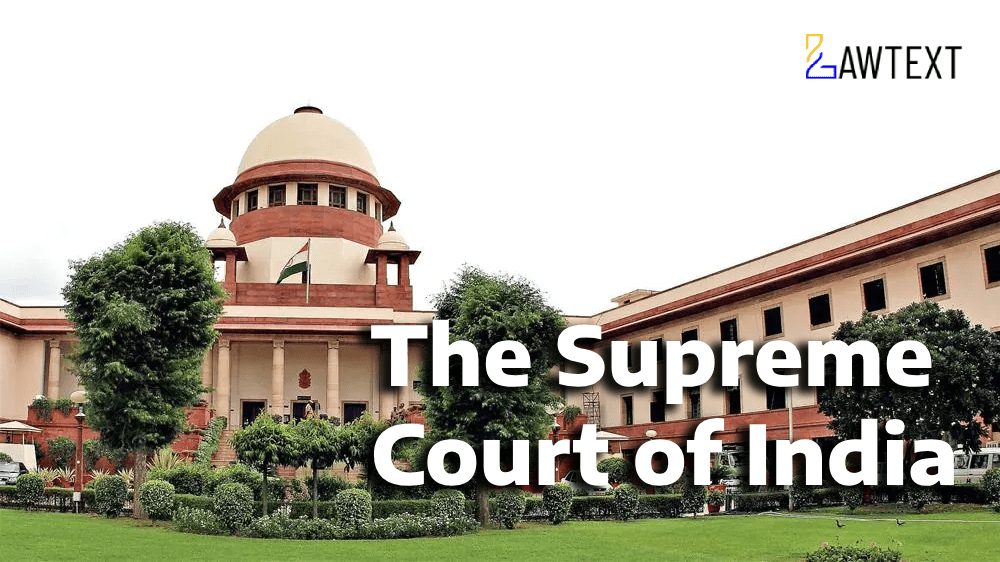

Constitutional Protection: Denying burial rights based on religious conversion violated Articles 14 and 15. Failure of Authorities: The Panchayat failed to fulfill its duty by not formally designating a Christian burial site, leading to unnecessary conflict. Recognition of Past Practice: The Court acknowledged prior Christian burials in the village graveyard and found the sudden restriction unjustified. Secularism and Fraternity: The Court emphasized that India’s secular fabric requires tolerance and equal treatment of all religious communities. Practical Considerations: Given the prolonged stay of the body in the mortuary, an expedited resolution was necessary.
Acts and Sections Discussed:
Constitution of India, 1950 – Article 14 (Equality before Law) – Article 15 (Prohibition of Discrimination)
Chhattisgarh Panchayat Raj Adhiniyam, 1993 – Relevant Provisions on Burial Grounds
Chhattisgarh Panchayat (Management of Public Land) Rules, 1999 – Designation of Burial Grounds
Code of Criminal Procedure, 1973 – Section 144 (Preventive Measures for Public Order)
Subjects:
Burial Rights – Christian Convert – Village Graveyard – Religious Discrimination – Equality Before Law – Panchayat Responsibility – Constitutional Protection – Secularism – Public Order
Facts:
Nature of the Litigation: The case concerned a burial dispute where the appellant, Ramesh Baghel, sought permission to bury his father in his native village Chhindwada.
Who Approached the Court and Remedy Sought: The appellant approached the High Court seeking police protection and the right to bury his father in the Christian-designated area of the village graveyard.
Reason for Filing the Case: The appellant faced opposition from villagers who claimed that converted Christians could not be buried in the village graveyard. The local police pressured the family to remove the body, and the Gram Panchayat failed to intervene.
Prior Decisions: The High Court denied the appellant’s request and suggested burial in a Christian cemetery 20-25 km away. The appellant challenged this order before the Supreme Court.
Issues:
a. Whether the denial of burial rights to a Christian convert violated Articles 14 and 15 of the Constitution of India.
b. Whether the village graveyard was meant for all residents, including Christian converts.
c. Whether the Gram Panchayat and State authorities failed in their duty to designate a Christian burial site.
d. Whether the High Court’s direction to bury the deceased in another village was justifiable.
Submissions/Arguments:
Appellant’s Argument:
Previous burials of Christian converts in the village graveyard had taken place without objection.
The denial of burial rights was discriminatory and violated constitutional protections.
The Gram Panchayat failed in its duty to demarcate a Christian burial site.
State’s Stand:
The village did not have a formally designated Christian burial ground.
Past Christian burials were informally permitted.
Suggested burial at Karkapal, 20-25 km away.
Villagers' Opposition:
Asserted that an informal Gram Panchayat rule prohibited the burial of converted Christians in the village graveyard.
Decision:
The Supreme Court set aside the High Court order and ruled in favor of the appellant.
The appellant was permitted to conduct the funeral rites on his private agricultural land.
The State authorities were directed to provide security to the appellant and his family.
The State was instructed to demarcate Christian burial sites across Chhattisgarh within two months.
Judicial Precedents:
The Court referred to previous rulings affirming religious freedoms and the right to dignity in death.
Cited Mahatma Gandhi’s views on religious tolerance and Supreme Court judgments on non-discrimination.
Final Consideration:
Since no formally designated Christian burial ground existed in the village, burial on private land was legally permissible.
The State and local authorities were directed to ensure that such conflicts do not arise in the future by demarcating burial sites.
Court’s Directions:
a. The appellant was permitted to conduct the funeral rites on his private land.
b. The appellant could not claim legal advantages from this permission.
c. State authorities were directed to provide police security.
d. The implementation of these directions was to be expedited due to the prolonged stay of the body in the mortuary.
e. The State was obligated to demarcate Christian burial sites across Chhattisgarh within two months.
Reflection on Secularism:
The Court reinforced that fraternity, unity, and secularism are essential principles in a diverse society.
Conclusion:
The Supreme Court upheld the appellant’s burial rights, ensuring constitutional protections and setting a precedent for future disputes involving religious discrimination in burial matters.
Citation: 2025 LawText (SC) (1) 272
Case Number: CIVIL APPEAL NO. OF 2025 (Arising out of Special Leave Petition (Civil) No.1399 of 2025)
Date of Decision: 2025-01-27
Case Title: RAMESH BAGHEL VERSUS STATE OF CHHATTISGARH & OTHERS
Before Judge: (B.V. NAGARATHNA J. , SATISH CHANDRA SHARMA J. )
Appellant: RAMESH BAGHEL
Respondent: STATE OF CHHATTISGARH & OTHERS